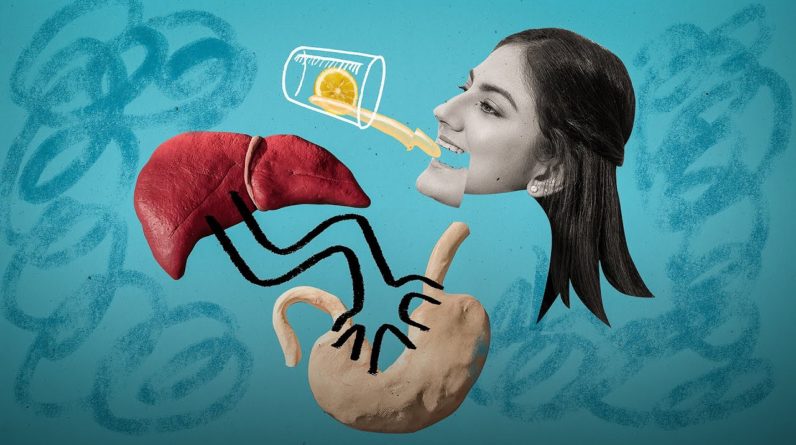
Transcriber: "Should I do a cleanse?" I hear people asking this question a lot. If you're hoping it will remove
toxins from your body, that's just not going to happen. (Music) [Body Stuff with Dr. Jen Gunter] Detoxes and cleanses are very popular. They come in many forms, from charcoal-infused lemonades
to detox teas, and they often have a hefty price tag. The idea of cleansing
isn't anything new — it's been around for thousands of years.
For centuries, medicine and religion
were deeply intertwined, and there was a lot of focus
on ridding the body of impurities and sickness
related to bad or imbalanced humors. Bloodletting, purging, fasting — they were all well-regarded treatments. Today, the wellness industry has picked up on our desire
to rid ourselves of things. They've taken the word "detox," the medical treatment for people
with drug and alcohol addictions, and used it to apply to market cleanses. They make it sound like pouring
liquid cleaner down plumbing, getting rid of all the dirty stuff. But the reason that sounds right to us is it's a rooted
in a lack of understanding of how our liver works. The liver is located
in our upper right abdomen. It's somewhere around half
the size of a football — an American football — and weighs three pounds. It does many, many jobs
that keep our bodies running, from assisting the immune system, to creating proteins for blood clotting, to sending out the cholesterol we need
to produce hormones. The liver is also a key organ
for dealing with harmful substances.
You can think of it almost like a factory. It takes nutrients from substances
that we consume, food, drinks, medicines, breaks them down so they can either be packaged
in a way that's usable — like cholesterol
and protein, for instance — or removed as waste
in the bile or via the kidneys, usually in the form of urine. Let's look at what happens when the liver encounters
some specific substances. What about alcohol? That’s a substance that’s fine
in smaller, moderate amounts but becomes poisonous in excess. When we drink, alcohol
passes through our liver, and the liver breaks
it down in three steps. First, enzymes convert
the alcohol to acetaldehyde, a substance that can
damage cells over time. But acetaldehyde
is quickly converted into acetate, a much more stable intermediate, before it breaks down
into carbon dioxide and water. These are components our body can handle. Now let's look at a popular cleanse — cayenne, pepper, lemon juice drink, to help your liver flush toxins. You drink it, it gets digested, nutrients get absorbed
in the blood and arrive at the liver.

The liver processes these nutrients
the same way it processes everything else. It packages whatever's useful
that came from the lemon and the pepper and disseminates it throughout the body. Whatever it can't use becomes waste. There's nothing particularly magical
about mixing cayenne and lemon. Doing a cleanse doesn't "clean the pipes," and it doesn't make your liver
work any better or faster. At best, you might lose
a few pounds on a cleanse, because you aren't eating much. At worst, you could go
into starvation mode. You could throw off
your electrolyte balance, not to mention disrupt your intestinal
flora and bowel function. Clearly, having a healthy liver
is extremely important.
The best things you can do: don't smoke, eat a balanced diet, exercise regularly
and get lots of sleep, but there are some more
liver specific things to do. Don't consume too much alcohol, as it can cause a variety
of problems over time, from fatty liver disease
to cirrhosis of the liver, to liver cancer. Read the warning labels on medications as some can damage your liver
when you don't take them as directed. You've probably heard about hepatitis, which can be caused
by a viral infection of the liver that can be very serious. Get the vaccine for hepatitis B,
if you haven't already.
And if you're an adult who hasn't been
screened for hepatitis C, consider talking to your doctor
about testing options, as too many people don't
realize they have it. Finally, be careful
with supplements and herbs, particularly anything
marketed as bodybuilding or a weight loss supplement, as these are not nearly
as well-regulated as you would think. 20 percent of liver injury due to
medication in the United States is actually caused
by these kinds of supplements. So talk to your doctor
before you start them. So many things
are sold to us as self-care, and cleanses are no exception, but I believe the best self-care
is just learning more about our bodies. That way, we can tune out all the noise and make informed decisions
on what we really need..







